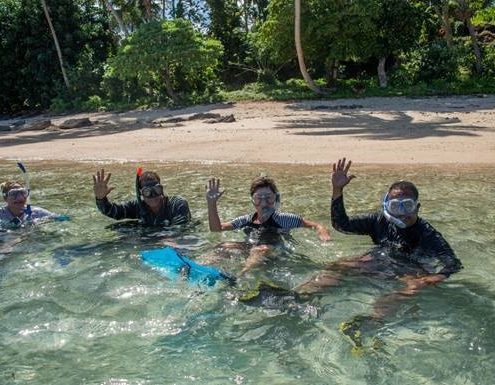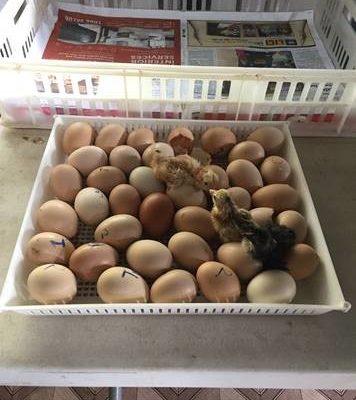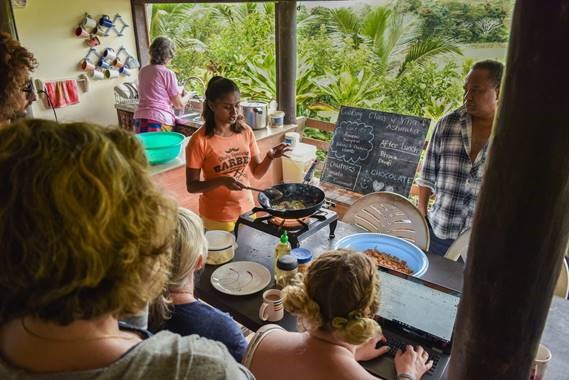A Fabulous Week in Fiji
Learning How to Live Sustainably from the Land and Sea
Who would ever think you could learn so much over a six-day period on a farm in Fiji? That’s exactly what we did, when we were kindly hosted by Austin and Kim Bowden-Kerby on their Teitei Livelihoods Farm near Sigatoka, Fiji.
Our group consisted of volunteers and friends of KYEEMA who wanted to experience why village chickens are so important to rural livelihoods. They also hoped to learn more about permaculture, coral reef gardening and what it means to live mostly from your own garden. We achieved virtually all of these objectives!
On day 1 we were treated to an overview of the farm and why Austin felt the need to breed local chickens. Fiji has vast coral reefs, which sadly have been degraded severely due to overfishing, population pressure, silt from rivers and most recently coral bleaching events. In order to restore reefs and therefore fish breeding grounds, Austin has worked tirelessly with communities around Fiji on coral reef restoration activities.
However, he soon realised that an alternate source of protein and income was required, if communities were required to set up “no fish” zones in order to give their reefs time to recover. Hence his “Happy Chickens” project! He has now distributed over 32,000 improved breed local chickens around Fiji.
Snorkeling around the coral reef nursery site.
Baby chicks just hatched.
As if that wasn’t enough, he decided that he needed to “walk the talk” on living a sustainable life, so set up Teitei farm as a permaculture farm and sent his Farm Manager, Junia, off to Australia to be trained in permaculture techniques. The result is a wonderful oasis in the middle of Fiji, resplendent with chickens, ducks, geese, a few sheep and a myriad of trees, shrubs and crops, all with some food or medicinal value that Junia, the farm manager, can tell you all about.
Junia taking our group for a tour of the farm.
Subsequent days consisted of learning about village chicken keeping; permaculture; Fijian-Indian cooking; making soap, making coconut oil, cheese and vinegar, starting right from shucking the coconuts to the final projects; making chocolate using cocoa beans picked from the farm; experiencing a lovo and kava ceremony in the local village; running up the sand hill that the Fiji Rugby Sevens train on (no wonder they are world champions!); and last but not least, visiting a coral reef restoration site.
Ashmita teaching us how to make a good Fijian-Indian curry.
Suffice to say, we all returned energised and ready to put our new-found skills to use!
For more information on the project, visit the Happy Chickens project site and watch this space.






